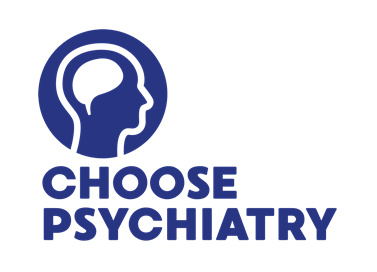Working on the inside: Life as a forensic psychiatrist
21 October, 2019
Dr Jo Brown explains the unexpected joy and humanity she has uncovered in her role as a forensic psychiatrist.
“But you don’t work with people who kill people, do you?” said my mum during a discussion about the Louis Theroux documentary By Reason of Insanity (2015).
I had just got my consultant job as a forensic psychiatrist. I had done three years of higher training in different settings – high secure, medium secure, low secure, prison, community patients, forensic learning disability and the serious offenders liaison service. I had been sure that she understood what it was I did.
What forensic really means
Forensic psychiatrist. Even now, when I tell people what my job is some people ask if I work with dead people. Forensic refers to ‘crime’. My job is working as a psychiatrist with people who have committed offences and who have a diagnosis of a mental illness or disorder.
Sometimes the offences are directly related to their illness/disorder, sometimes they have committed offences and happen to become unwell – the same way any one of us might – and sometimes people become so distressed and unwell that they require a setting with more staff and more secure surroundings without there being an offence involved. My job is varied with inpatients (in a medium secure unit), outpatients, prison clinics and a clinic for military veterans (not strictly forensic!).
A fantastic professional community
So why do I love my job? In all honesty, it’s the people I work with – both patients and staff in the different settings I work.
The different staff teams I work with are dedicated, hardworking and cheerful. I have been fortunate to find myself in teams that are supportive and challenging. They push me and ask me to do more for the patients that we support and care for. I believe this makes me a better doctor. They make me think about things differently, to reconsider ideas, take into account the different elements of a patient’s story and be more reflective of my own practice. Being in teams like these can only improve the care that we provide for patients.
A privileged position
The patients themselves continue to surprise me. Because of the settings I work in, I generally have a lot of time to get to know them – their skills, talents, their stories, their experience of illness, the offences they have committed and their families, who can often be the victims of their offences.
This is a privilege. I don’t want that to sound disingenuous or patronising. As a human, to learn about the good and bad of a person, to be used as a confessor, to be the first person that hears about a terrible trauma, to sit with a person as they talk through these things – it is a privilege. This is something I don’t take lightly and that can make my job hard. We hear many terrible things and yet we help people find hope.
Supporting the justice system
Linking to the court system is an important part of this. I have to ensure that courts hear about the impact that an illness or disorder has on a person’s actions – or not! I want to make sure that I provide accurate information to the court in order that decisions made in the court room are well-informed. Holding patients as both perpetrators and victims themselves is an important part of my job. Making sure that they are advocated for whilst recognising the significant impact that the offence they have perpetrated has had on victims and families makes planning care challenging at times, but also rewarding when a balance can be found.
Part of my role is thinking about whether people might still present a risk of harm to others and/or themselves and planning ways in which everyone remains safe. This is a huge responsibility and one that all psychiatrists, criminal justice agencies and the police can be criticised for – whether something happens or not. Working with my patients to manage this is challenging but rewarding when things go well, and I see people move on.
A joyful job
The part that I hadn’t expected in my job – and perhaps the part that no one expects – is the joy. I have laughed with patients and their families – a lot! The humanity of my job is not just about the serious moments, it is also about these moments. It is sitting in the hospital gardens when two of patients receive awards for the work that they have done there. It is seeing a patient produce artwork, meeting a patient on a bus, trading bad jokes with patients and watching films at Christmas and sharing a box of biscuits.
So, yes – sometimes I work with people who hurt other people. But that’s not what is important. I don’t love my job for the scandal, the news headlines or the ‘danger’. I love my job for the people who share their stories with me – those I have the opportunity to help and see moving on to their families and friends. I love my job for the teams I work with – our Christmas Nights Out, the challenges, the team working! I love my job because it challenges and rewards, and it makes me think and reflect.
It makes we want to get up in the morning – well mostly…I am human after all!












